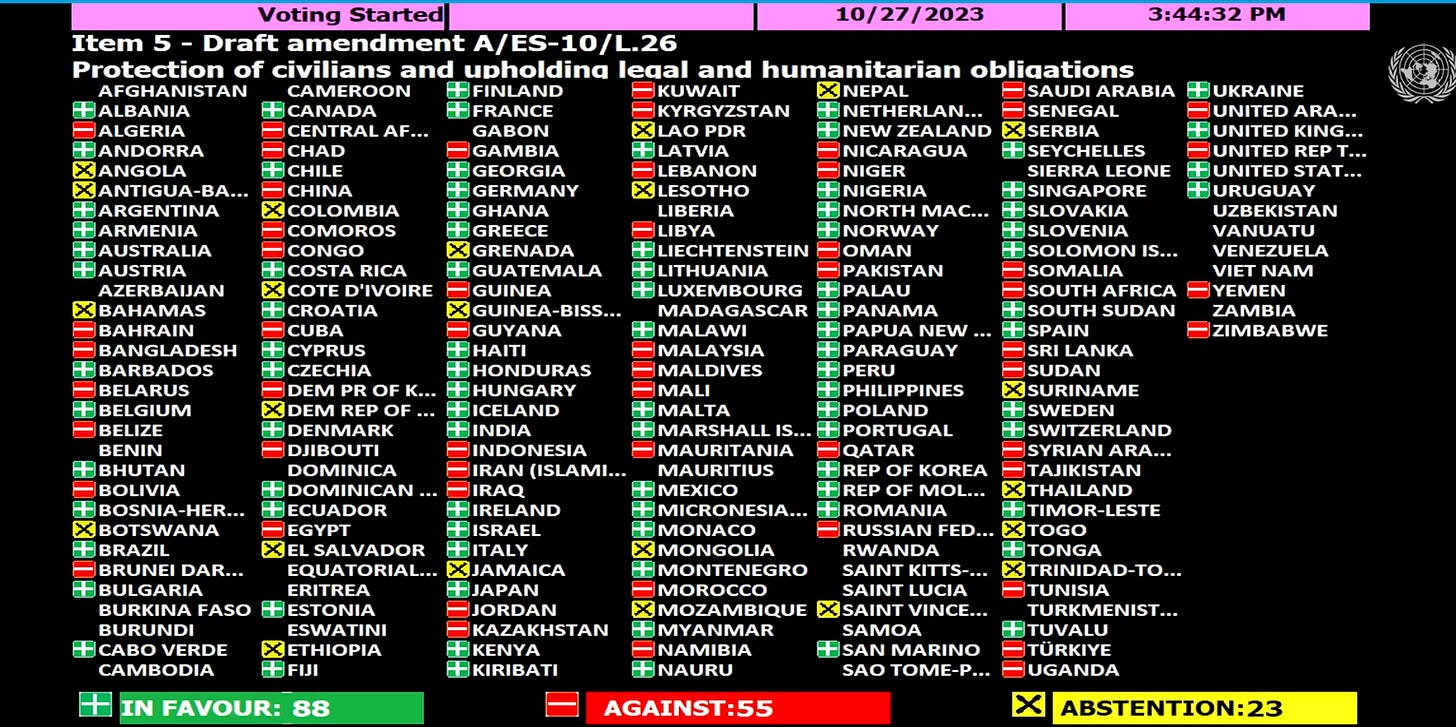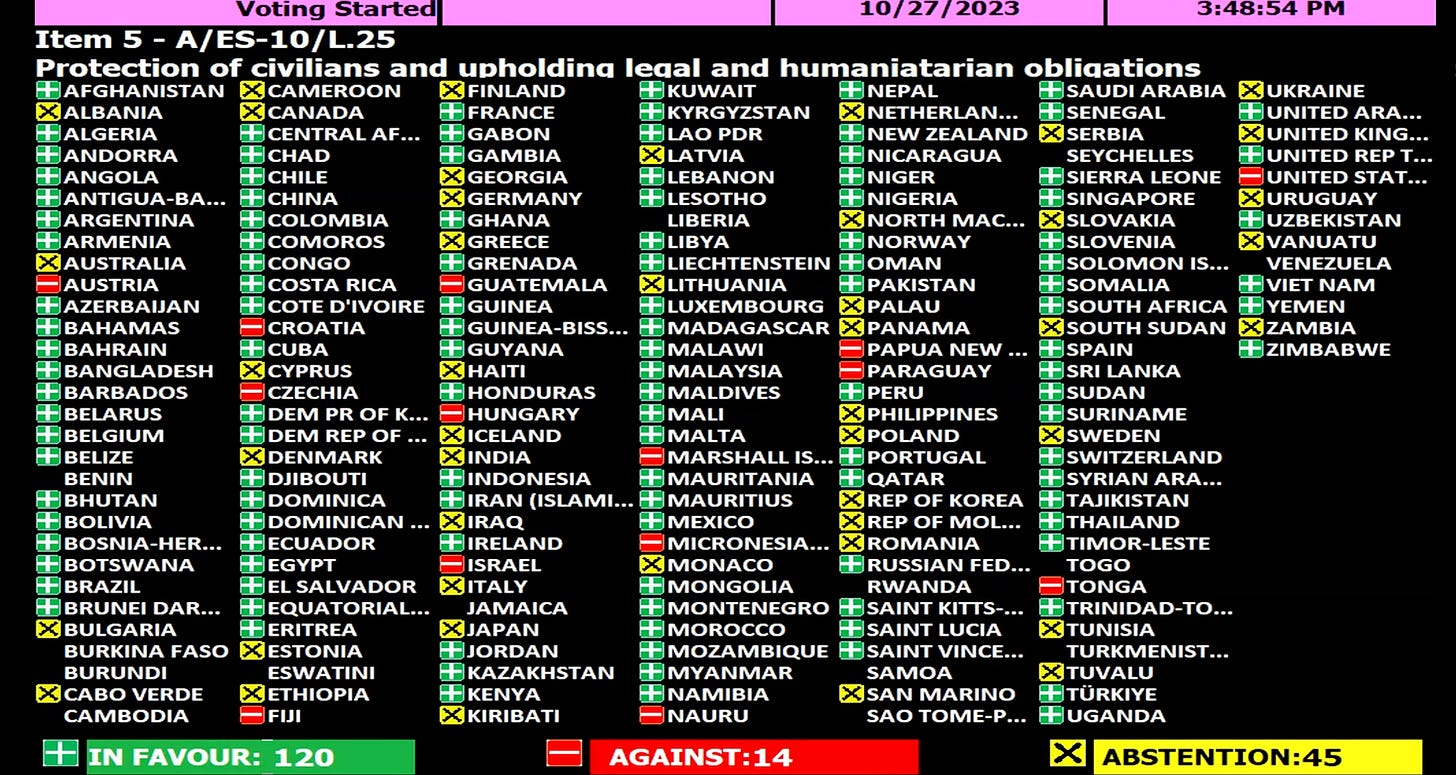Moments ago, the United Nations General Assembly suspended its emergency meeting on Israel and Gaza to hold a vote on a resolution calling for an immediate humanitarian truce. The resolution was drafted by Jordan and co-sponsored by more than 40 other UN member states. This vote comes on the heels of failed efforts at the Security Council earlier this week to secure “humanitarian pauses” (as the United States insisted) or “an immediate ceasefire” (as the Russians demanded).
With those votes failing at the 15 member Security Council, the locus of diplomatic action shifted to the 193 member UN General Assembly. Here, every country has a vote and no country has a veto. The resolutions are not binding, but they are an important reflection of international sentiment. Today, it was clear that the overwhelming majority of UN member states want an immediate humanitarian truce.
The voting began with a Canadian amendment to the Jordan draft which included a direct condemnation of Hamas’ October 7 terrorist attack. Canada, the United States and many western countries insisted that this condemnatory language be included in order to secure their support. That amendment failed to garner the required two-thirds majority to pass, failing with a tally of 88 in favor, 53 against, and 23 abstentions.
Here is a breakdown of the vote on the Canadian-drafted amendment to include an explicit condemnation of Hamas’ attack.

With that amendment failed, the General Assembly voted on the original resolution which called for “an immediate, durable and sustained humanitarian truce leading to a cessation of hostilities.” This language was crafted as a compromise between “humanitarian pauses” and “immediate ceasefire,” but its intention was clear: the fighting needs to halt immediately for humanitarian reasons.
Here is how every country voted on the resolution, which is considered adopted because it garnered two-thirds majority with 120 affirmative, 14 against and 45 abstentions.

As you can see, the United States and Israel were quite isolated in their opposition.
Europe was always going to be a key swing vote. After the Canadian amendment failed most European (and western) countries opted to abstain from the resolution, rather than joining the United States in voting against it. This includes Canada! It would seem that very few countries are willing to be on the record opposing a humanitarian truce as the conditions in Gaza so rapidly deteriorate.

